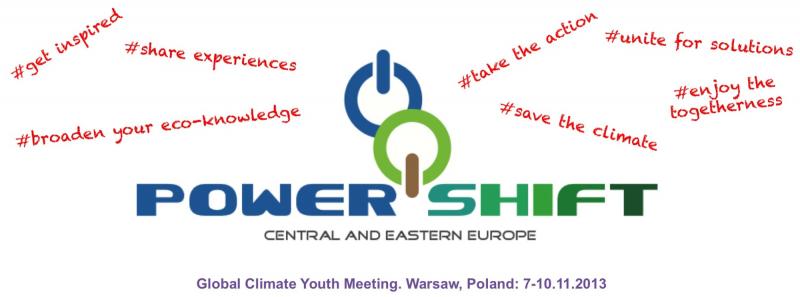
Climate Youth Call out Corporate Capture and Plan for Public Actions
Before the negotiators arrive in Warsaw for the 19th Conference of the Parties (COP19), youth from around the world have gathered for the COY – the Conference of the Youth – from the 6-10 November to work out how they can shift power at the COP in favour of genuine climate solutions.
Despite a bus in the wrong direction, Corporate Europe Observatory made it to the COY to present new research on the biggest climate criminals attending COP19. The afternoon workshop shared extracts from the soon-to-be released 'COP19 Guide to Corporate Lobbying', which will be featured on this blog next Monday 11th to coincide with the start of the official negotiations.
The presentation explained how the biggest polluters are using the UN climate talks to present themselves as greener-than-green corporations, despite the worrying reality:
The lobby group for the gas industry, EUROGAS (European Union of the Gas Industry), is one of the key players in the upcoming talks in Warsaw, and well represented in Poland by the national gas giant PGNiG. Incidentally, PGNiG holds most of the country's shale gas licences and is a big advocate of the unpopular practice of fracking, a position EUROGAS tries to justify:
"policy towards shale gas should be determined by what is best for our customers’ welfare. As always, this means that economics and security of supply should be in the driving seat."1
The serious health, environment and climate impacts of shale gas are well-documented, but according to EUROGAS they're not a serious concern to the public. Unsurprisingly, EUROGAS member PGNiG is also well-known for its 'astroturf' campaigns, i.e. pretending to represent the views of grass-roots citizens groups (see the activities of their 'Citizens Coalition for Responsible Energy').
BusinessEurope, the European employers' confederation and one of the most powerful EU business lobbies in Brussels, was another featured climate criminal. Aside from national employers associations, its direct business members include Unilever, Pfizer, Phillip Morris International, BASF, Rio Tinto, Microsoft, Shell and BP, as well as COP19 partners Alstom, ArcelorMittal and BMW – a who's who of the worst polluters. BusinessEurope has been depressingly successful in weakening and blocking climate measures, such as a more ambitious emissions reduction targets.
The Polish member of BusinessEurope – Lewiatan – was also a contentious player: key in organising the pre-COP19 negotiations, it not only ensured that business was given the top seat at the table while NGOs were excluded, but it also released – in partnership with BusinessEurope – a particularly troubling statement around the pre-negotiations. It called for governments to ensure that a global climate agreement builds upon the
“Market-based approach... as it gives an economic incentive for sectors to reduce their emissions in a technology-neutral way”2
In other words, they want business-as-usual enshrined in the climate treaty, with “technology-neutral” approaches that don't set specific targets for renewables or energy efficiency technologies, so that big business can pick the technologies it wants (to profit from), such as 'fracking (shale gas), CCS and nuclear.
The session ended with break-out groups focusing on what message to take to the streets of Warsaw and into the negotiations – which corporate polluters were the biggest climate criminals, which example of greenwash the most duplicitous (Alstom calling its power plants 'steam powered' as a cuddly alternative to coal?), and which dirty false solutions need to be aired in public?

###
This story is part of our blog Corporate COP19. Read all the other stories here.
For comprehensive background information, check out the COP19 Guide to Corporate Lobbying.
For the latest, follow in Twitter: #CorporateCOP19 @pascoesabido @ecospaceship
1 EUROGAS, 'Unconventional/Shale Gas:Policy Recommendations', February 2012, http://www.eurogas.org/uploads/media/Position_Paper_Eurogas_Policy_recommandations_on_Unconventional_Gas_20.02.12.pdf, accessed October 2013
